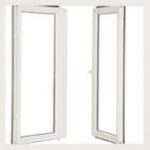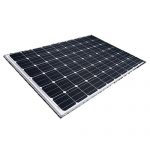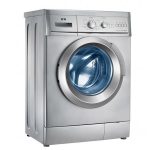Why uPVC Windows are better Than Aluminium Windows
Windows are an important part of all houses, as it not only bring daylight into your house but also connects you with outdoors. So, installing new windows in your house is a major home improvement decision.
While there are various types of windows available in the market, uPVC windows and aluminium windows are more popular due to durability, aesthetics and cost-effectiveness.
If you’ve to decide the best one out of these two window types, uPVC windows are gaining more popularity across the globe. Although aluminium windows are also a very strong, recyclable and practical option, according to uPVC windows dealers, uPVC has a slight edge over aluminium.
Here are certain points validating why uPVC windows are considered better than aluminium windows:
- Extreme weather resistance (UV): uPVC windows can withstand any weather and needs less maintenance compared to aluminium. Available with any monsoon proof uPVC windows manufacturer, these windows don’t react to air and water and are also not susceptible to natural elements. This means these windows have a longer life span compared to aluminium windows that are prone to fading due to powder-coated paint.
- Oxidation and Corrosion: uPVC windows are resistant to oxidation and corrosion. On the other hand, aluminium windows corrode due to oxidation and also form a white residue on its surface.
- Customisation: The top uPVC window dealers offer stable products with excellent design flexibility. With various developments in the manufacturing process, uPVC windows are available in a series of customisable styles, shapes and imitation effects like wood grain. Certain manufacturing companies also offer tailor-made uPVC products in desired specifications. This means your uPVC windows will fit perfectly into any residential or commercial space. On the other hand, aluminium windows have limited design options.
- Insulation property: uPVC windows have the U value of around2.1 W/m2k, which means it has high thermal insulation. On the other hand, aluminium has 3.68 W/m2k U value, indicating low thermal insulation. uPVC is also a low conductor of heat, which means if installed properly, it will insulate the indoor air while minimising the heat loss that usually occurs with non-insulating materials.
- Maintenance: uPVC windows are low maintenance, unlike aluminium that may require repainting. Furthermore, the windows made from uPVC are likely to last for decades without any weathering signs. It only requires little upkeep of cleaning windows with soapy water to prevent staining. When it comes to aluminium windows, these installations do require frequent maintenance for preserving its aesthetic appeal.
- Fire resistance: According to general building regulation standards, window frames must be made out of fire-rated materials to prevent external fire spread. uPVC windows adhere to the general fire safety protocol due to its excellent self-extinguishing property. Aluminium, on the other hand, had a high melting temperature of around 600-660°C.
- Sound insulation: Unlike aluminium windows, uPVC windows offer good sound insulation. This means it will prevent the external noise of traffic, schools and night clubs from entering your living space. These windows are an ideal option for homeowners who live in areas with heavy traffic, industries or the central market.
Considering these points, uPVC windows are considered better than aluminium windows in today’s time.
Are uPVC windows safe?
Usually, the reputed uPVC windows dealers provide customers with many impressive accreditations and awards. This material also undergoes rigorous quality control testing to ensure the highest safety standards. Hence, there is no need to worry about any danger to your house. Some uPVC manufacturers also take additional precautions to recycle uPVC to leave a minimal carbon footprint on the environment.
Are uPVC windows toxic?
No, uPVC windows are not toxic. These are safe and free of toxicity. Since the production of uPVC is highly regulated to ensure it won’t harm the environment, there is no need to worry about it being toxic. If we talk about PVC, it releases certain dioxins into the environment when burnt. These released dioxins are considered to be persistent organic pollutants. However, unplasticized polyvinyl chloride (uPVC) doesn’t release any such harmful elements into the environment. Hence, it’s non-toxic. It’s also considered eco-friendly because this material can be recycled after use.
Conclusion
Based on the above comparison of aluminium and uPVC windows, we can figure out that uPVC windows are gaining popularity due to its aesthetics, affordability, properties, etc. Nowadays, you can easily find lightweight yet durable uPVC windows to stand the test of time for decades. However, you can make the buying decision according to your budget and requirements.




